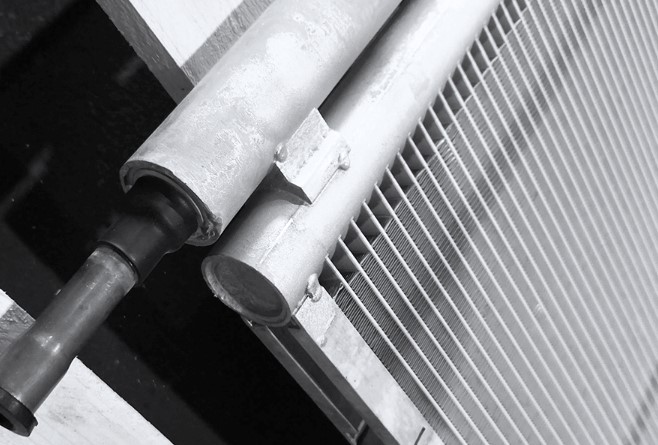Effective Maintenance Practices for Microchannel Evaporators
Maintaining micro channel evaporator is essential for ensuring their optimal performance and longevity. Proper maintenance not only enhances the efficiency of these sophisticated heat exchangers but also extends their lifespan, resulting in significant cost savings over time. This article outlines the best practices for maintaining micro channel evaporators, ensuring they operate at peak efficiency.
Regular Cleaning and Debris Removal
Preventing Blockages
Micro channel evaporators are designed with numerous small channels to maximize surface area and heat transfer efficiency. However, these small channels can become easily clogged with debris, dust, and other particulates. Regular cleaning is crucial to prevent blockages that can impede airflow and reduce efficiency. Using compressed air or a soft brush to remove debris from the fins and channels helps maintain unobstructed airflow and optimal heat exchange.
Chemical Cleaning Solutions
In addition to physical cleaning, using chemical cleaning solutions can effectively remove stubborn deposits and contaminants that accumulate over time. Ensure the cleaning agents used are compatible with aluminum and other materials in the micro channel evaporator to avoid corrosion or damage. Regular chemical cleaning can prevent the buildup of scale and other residues that reduce thermal conductivity and efficiency.
Inspecting for Leaks and Damage
Routine Visual Inspections
Regular visual inspections are essential to detect any signs of leaks or physical damage to the micro channel evaporator. Check for oil stains, which can indicate refrigerant leaks, and inspect the fins and channels for any signs of bending, cracking, or other damage. Early detection of leaks and damage can prevent minor issues from escalating into significant problems, ensuring the system remains efficient and reliable.
Pressure Testing
Conducting pressure tests periodically can help identify leaks that are not visible during visual inspections. Pressure testing involves pressurizing the system and monitoring for any drop in pressure over time, indicating a leak. By addressing leaks promptly, you can maintain the integrity of the refrigerant system and avoid efficiency losses.
Ensuring Proper Refrigerant Levels
Monitoring Refrigerant Charge
Maintaining the correct refrigerant charge is critical for the efficient operation of micro channel evaporators. An undercharged system can lead to insufficient cooling, while an overcharged system can cause excessive pressure and potential damage. Regularly check the refrigerant levels and adjust as necessary to ensure the system operates within the manufacturer’s specified range.
Leak Detection and Repair
In the event of refrigerant leaks, it is essential to locate and repair them promptly. Using electronic leak detectors can help identify even small leaks that may not be immediately apparent. After repairing any leaks, ensure the system is recharged to the proper refrigerant level to maintain optimal performance.
Optimizing Airflow
Checking Fan Operation
The performance of the fans that circulate air through the micro channel evaporator is crucial for efficient heat exchange. Regularly inspect the fans to ensure they are operating correctly and at the appropriate speed. Clean the fan blades and housings to prevent dust and debris buildup that can reduce airflow and efficiency.
Maintaining Clear Air Paths
Ensure that the area around the micro channel evaporator is free from obstructions that could impede airflow. Adequate spacing around the unit allows for proper ventilation and efficient operation. Regularly inspect and clean the air filters to maintain unrestricted airflow and prevent dirt and debris from entering the evaporator.
Scheduling Professional Maintenance
Annual Professional Inspections
While regular maintenance can address many issues, scheduling annual inspections by a qualified HVAC technician is recommended. Professional technicians can perform comprehensive checks, including testing electrical connections, calibrating controls, and verifying system performance. Their expertise can identify potential issues before they become significant problems, ensuring the long-term reliability of the micro channel evaporator.
Updating Maintenance Records
Keep detailed records of all maintenance activities, including cleaning, inspections, repairs, and refrigerant adjustments. Maintaining a thorough maintenance log helps track the performance and condition of the micro channel evaporator over time, enabling better planning for future maintenance and replacements.
Conclusion: Sustaining Efficiency and Longevity
Implementing these maintenance best practices for micro channel evaporators ensures their continued efficiency and reliability. Regular cleaning, inspections, proper refrigerant management, and professional maintenance are critical for maximizing the performance and lifespan of these advanced heat exchangers. By adhering to these practices, you can enjoy the benefits of reduced operational costs and enhanced system longevity.









